The variety of modern building and decorative materials allows not only to significantly save money and time, but also to reduce the load on the foundation of the structure. For example, brick is often used to build a fence. It is necessary for the construction of pillars, between which finished sections will be installed. Buying bricks, metal supports, concrete and their installation is quite expensive. In addition, such heaviness will eventually destroy the foundation. Imitation of brick pillars is great to reduce costs and increase the life of the fence. Externally, special panels are no different from ordinary stone supports.
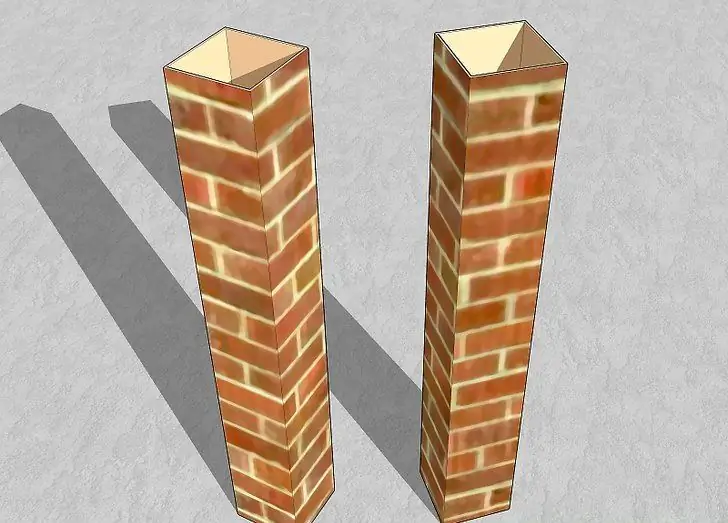
What is this
The abbreviation PICS, known in the construction world, stands for a panel,imitating a brick pillar. This is a decorative element used in the construction of fences. The dimensions of one unit of construction are 38x15x30 centimeters with a weight of 500 grams. From such blocks, a structure is assembled in the form of a pillar, of the desired height.
Brick posts look great: with a wooden fence, forged, from metal sections. In this case, you will have to fasten the PICS on both sides to get a full-fledged pole. To design the corner sides, you will need to cut the panel at an angle of 45 degrees and mount two similar halves into one.
Features
PIKS - imitation of a brick pillar, made of environmentally friendly material - polypropylene. They look like the letter P, a standard height of several stone elements. The thickness of the panel is 2 centimeters. Benefits:
- Used as a decorative element of fence posts.
- Facilitates construction and installation.
- Reduces material costs.
- Installation does not require professional knowledge in construction.
- Saves time.
- Installed on any type of soil.
- Does not fade when exposed to sunlight.
- Combined with other fence materials - corrugated board, fence.
- Can be used in interior decoration.
- Do not contain harmful substances and do not emit toxins.
- Resistant to various chemicals, acids and solvents.
- If handled carefully, PIX panels can be dismantled and reused.
Panels with imitation brickwork of fence posts tolerate temperature effects well: from minus 40 to 60 degrees Celsius. At the moment, the panels are produced in two colors: red and straw. However, the ability to paint the structure allows you to create an individual design of the fence and make the posts of the color you need using special paint. After installation, the entire structure is covered with a protective agent. It protects the structure from the negative effects of natural conditions - the surface does not fade in the sun and does not peel off.
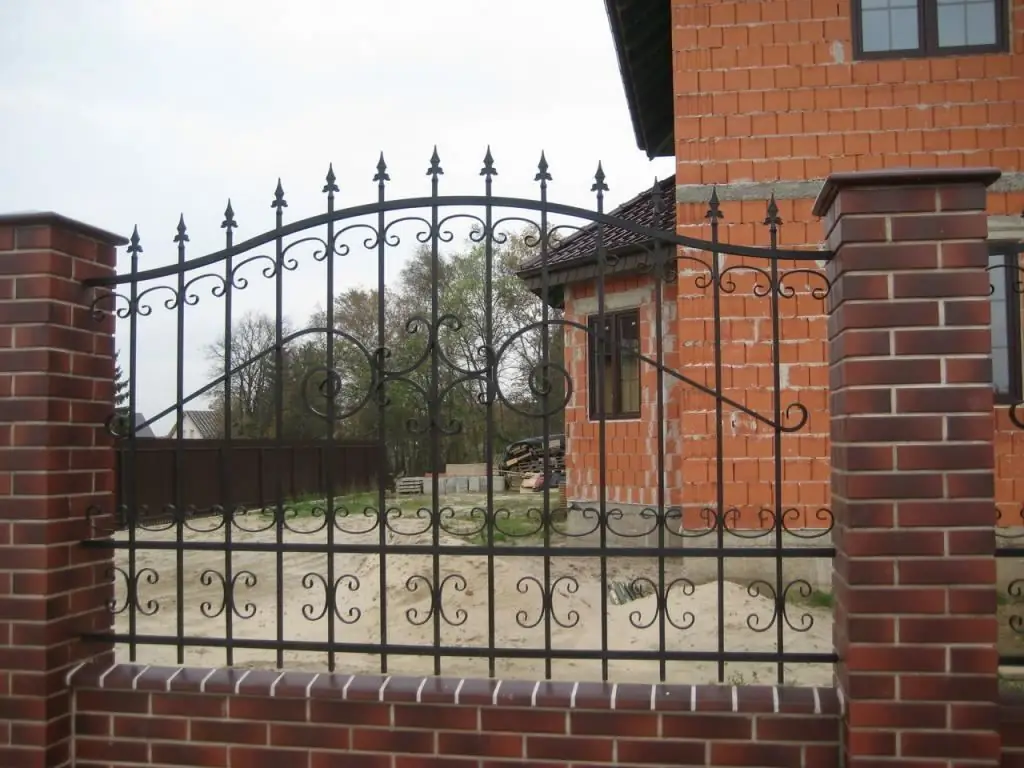
Flaws
Like any other building material, plastic imitation brick pillar has its drawbacks. But there aren't many of them:
- No corner pieces.
- Deforms under strong mechanical stress.
- The service life is slightly less than that of a real brick.
- After repair or additional painting, it may lose its performance.
What we need
The imitation of brick pillars is going to be quite quick and easy. Even someone who has never done this will cope with this task. For installation you will need:
- Metal corners.
- Secrets.
- Screwdriver.
- Roulette.
Step-by-step mounting markup is drawnat a distance of about three meters from one pillar to another. We set two metal corners along the width of the panel so that the mark is exactly in the middle.
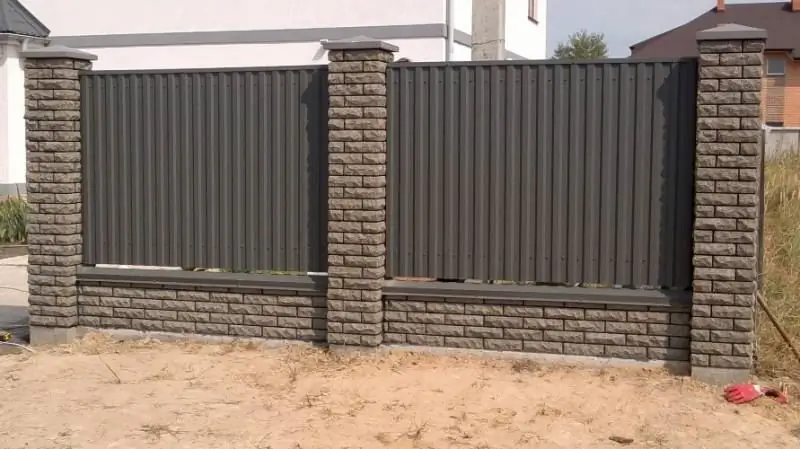
Panel installation
Imitation of brick pillars is installed on one or both sides of an already finished fence. The easiest way to do this is on corrugated board, without fence posts. If there are columns, then they are surrounded by panels on both sides, on pre-installed aluminum vertical corners. On a solid profile fence, we measure at what distance from each other the panels will be installed. If for real columns it is necessary to fill the foundation, then this is not required for the installation of plastic panels. Although from a design point of view, the presence of a foundation tape makes the fence complete.
A visor is installed on the topmost block. It protects the structure from moisture ingress, and is a decorative element. The panels are equipped with connecting locks, with holes for self-tapping screws. They are mounted to metal corners. We press the PICS to each other, leaving no gap between them. Elements are installed from the top block down, on both sides of the fence. The final element is cut with metal shears, a grinder.
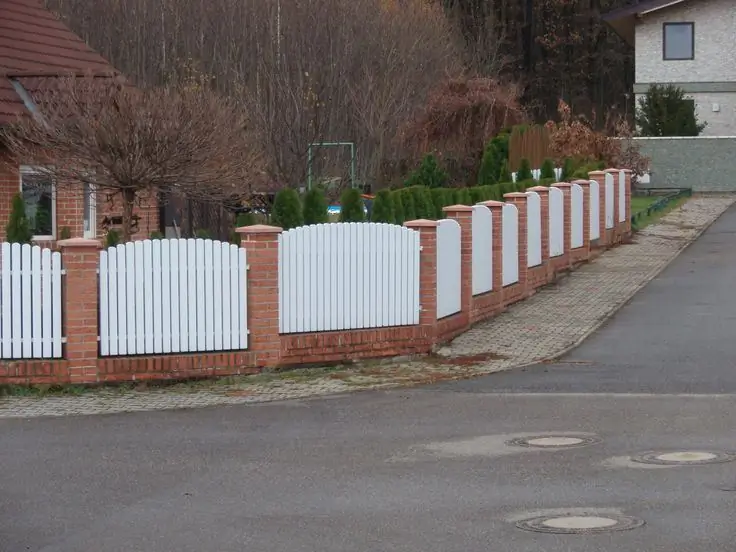
Calculate the number of panels
For those who are faced with the task of installing such fences for the first time, we will give a preliminary calculationnumber of panel units per single-sided or double-sided post:
- Single-sided pole 1.8 meters high - you will need 6 pieces of panels and half a cover.
- Single-sided pole 2 meters high - 7 panels, half cover.
- Double-sided pole 1.8 meters high - 14 panels and a whole cover.
- Double-sided pole 2 meters high - 16 panels and a whole cover.
Design
Since the panels appeared on the construction market, they have gained considerable popularity. In appearance, they are not much different from natural brickwork, but they cost several times cheaper and will be affordable even for those who cannot afford a stone fence.
The corrugated fence is also popular. But the metal sheets around the perimeter of the yard look unattractive. Imitation of the brickwork of fence posts will make the fence much brighter and more attractive. The elements look so realistic that few people will guess from afar that these are plastic panels.
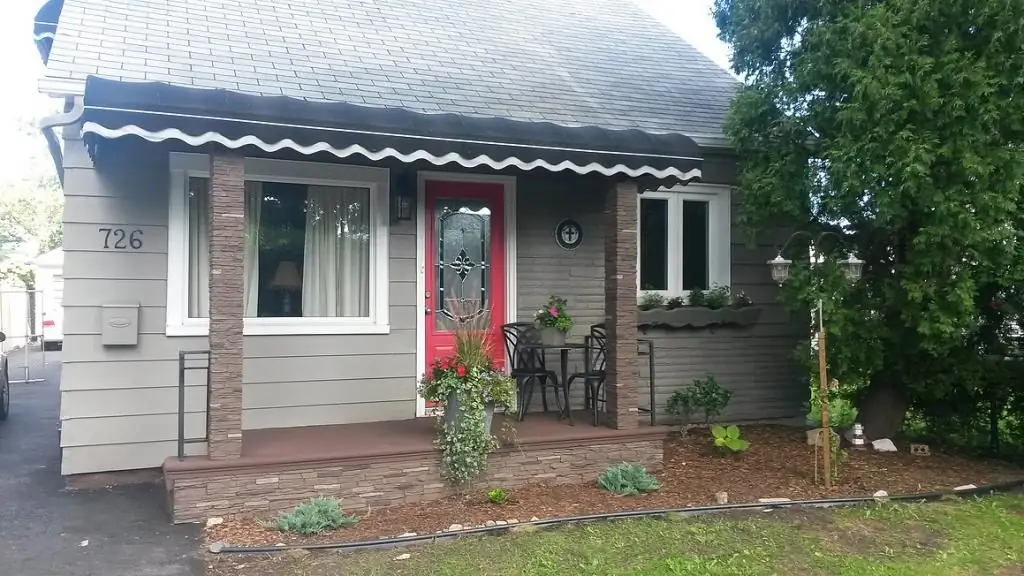
What to choose?
Not everyone has the opportunity to independently lay out columns of stone for the fence. In this case, imitation of brick pillars from plastic panels is much more profitable. Even a novice can handle their installation, thereby saving money on hiring workers. A full-fledged replacement for a real brick, a pix cannot be called, but as a decorative element installed in a minimum timeinterval is the best option. What to choose: a real stone or pix-panel is still up to the user. Much depends on the desire and possibilities.






